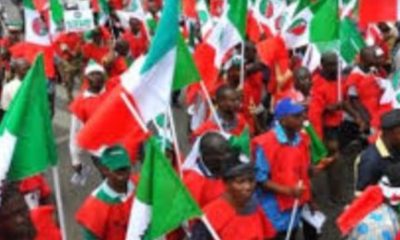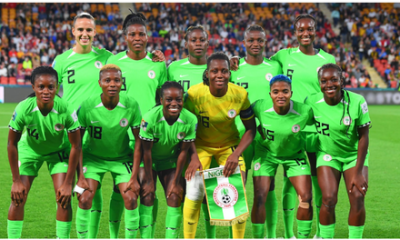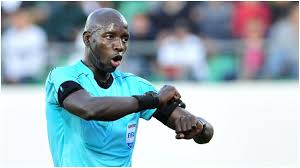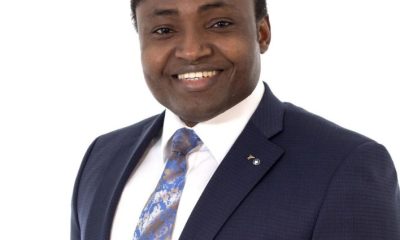Nigeria
NFF Set To Punish Osimhen

The Nigerian Football Federation (NFF) has announced that it may take disciplinary action against Super Eagles player Victor Osimhen following his recent social media outburst directed at former coach Finidi George.
Osimhen, who plays for Napoli, took to Instagram to respond to Finidi’s accusation that he deliberately missed World Cup qualifying matches against Benin Republic and South Africa.
Osimhen stated that he was injured and that he could provide evidence of his conversation with Finidi.
In an interview with Owngoal Nigeria, an NFF board member confirmed that the body is currently reviewing the situation and will make a decision within the next few days.
The NFF President, Ibrahim Musa Guseu, has already spoken with Osimhen about his outburst, and Finidi has also reached out to him.
“Already the president of the NFF, Ibrahim Musa Guseu, has spoken with Osimhen over his outburst and Finidi also reached out to him. The report he reacted to is fake, misleading and sadly he didn’t confirm before reacting. Osimhen is a role model and the only way we can help the incoming coach stamp his authority is by using him to set example.
“He crossed the line with his outburst even when Finidi called him to explain he still didn’t doom it fit to retract his statements. We won’t condone that and after the Salah break, we will sit on the issue. I can tell you he won’t be in the team until he says sorry for his actions.”
After Finidi George’s resignation, the NFF is working to appoint a new coach for the Super Eagles.
You may like
-
Ruud van Nistelrooy Opens Up on Hurtful Manchester United Exit Before Taking Leicester City Job
-
Why I don’t trust any public institution in Nigeria – Fisayo Soyombo
-
Minimum Wage: Cross Rivers Workers to embark on indefinite strike
-
Bayer Leverkusen Forward Victor Boniface Faces Possible Sanction for Reckless Driving Incident
-
International Friendly: Gusau, Sanusi, Falode to cheer Super Falcons against Les Bleues
-
Ancelotti Optimistic Despite Real Madrid’s Struggles in Champions League League
-
Paul Merson Predicts Premier League Results for Weekend Fixtures
-
Naira Appreciates Against Dollar Amid Increased FX Supply
-
8th African Nations Championship: Togolese, Moroccan officials for Nigeria, Ghana matches
-
Super Eagles Drop Eight Places in Latest FIFA Rankings
-
Tinubu Makes Historic State Visit to France as Macron Seeks Closer Economic Ties with Nigeria
-
Simon Ekpa’s Legal Troubles Deepen as Finnish Court Sets Date for Terror Charges
News
Over half of Nigeria’s cyber attacks target government, finance — Report

A recent research by Positive Technologies, a leader in result-driven cybersecurity, has revealed that over half of cyber attacks in Nigeria target the government sector and financial companies.
This was contained in the firm’s analysis of the current cyber threats on the African continent for 2023–2024.
According to the experts, these attacks are often carried out by organised hacker groups aiming for financial gain and espionage, as well as by hacktivists.
In Africa, government and financial institutions make up 29 cent and 22 cent of all successful attacks on organisations, respectively.
The analysis of messages on the dark web forums confirmed that these sectors attract cybercriminals the most: they account for 19 per cent and 13 percent of all the darknet listings.
Anastasia Bezborodko, an analyst from the International Analytics Group at Positive Technologies, noted: “The share of attacks against the government sector among all attacks on organisations in Africa is twice as much as was found in our previous research. “Most often, government institutions are targeted by APT groups (46 percent) aiming to collect data and perform cyberespionage, as well as by hacktivists (18 percent ).
” Cybercriminals primarily target government institutions in Nigeria (27 percent ), Algeria (17 percent ), Ethiopia (12 percent ), and South Africa (12 percent), according to dark web data.
“Attacks on the financial sector also increased, rising from 18 percent to 22 percent of all successful attacks.
“On the dark web, posts related to Africa’s government sector typically mention free distribution of information (66 percent), while those related to financial institutions focus on selling data and access (64 percent).”
According to Positive Technologies, more than half of the databases related to African countries are distributed for free on the dark web, while access to corporate networks can be bought for an average of $2,970.
One in 10 successful cyberattacks on organisations in the region targeted the industrial sector.
The main goal of these attacks was to disrupt production processes and steal confidential information.
Another 10 percent of attacks targeted telecommunications: cybercriminals are drawn to vast amounts of personal data and customer payment information. In attacks on organisations, criminals most often targeted computers, servers, and network equipment (65 cent).
This points to weak infrastructure protection, such as vulnerabilities.
The report covered the period from Q1 2023 to Q3 2024. network perimeters and poorly configured services that are accessible externally.
Attacks targeting web resources surged from 15 per cent to 27 percent with DDoS attacks accounting for half. Malware was the most common method used in cyberattacks, accounting for 43 percent of attacks on organisations and 53 percent of attacks on individuals. In almost one-third of successful attacks on companies, cybercriminals used ransomware, and in one out of every four attacks, they deployed spyware.
In 18 percent of attacks on organisations, hackers exploited vulnerabilities. The most common result of cyberattacks on organisations (61 percent ) and individuals (53 percent) was hackers accessing confidential information.
Another common issue was disruption of core business operations, which occurred in 18 percent of successful attacks.
According to open-source data, a significant share of cyberattacks happened in South Africa (22 percent ) and Egypt (13 percent). Meanwhile, analysis of posts on the dark web forums revealed that these messages primarily targeted South Africa (25 percent ), Nigeria (18 percent), and Algeria (13 percent ).
Most often, dark web listings feature databases (61 percent), and more than half of these databases (64 percent) are given away for free. Criminals also sell data for accessing the networks of major African companies (38 percent of all analysed dark web messages). Most of these posts (74 per cent) are about selling access, with an average price of $2,970.
In recent years, digital technologies have been implemented across various sectors in Africa, opening up new opportunities for cybercriminals.
To increase the region’s cybersecurity and thwart future cybercrimes, experts at Positive Technologies recommend adopting protective measures, such as developing and timely updating cybersecurity strategies and identifying critical information infrastructure, the disruption of which could cause non-tolerable events at industry and national levels.
To ensure cyber resilience, experts recommend that organisations conduct risk analysis, put together a list of events that could cause irreparable damage, regularly update systems and applications, and continuously check the effectiveness and relevance of security mechanisms and tools in place. Organisations should also host educational events to teach employees basic security rules and allocate budgets for training cybersecurity specialists. To improve cybersecurity, experts recommend forging strong partnerships between the government and private sectors.
Strengthening international collaboration, sharing knowledge, and exchanging experiences on current cyberthreats and protective measures are also crucial.
Positive Technologies is an industry leader in result-driven cybersecurity and a major global provider of information security solutions.
Our mission is to safeguard businesses and entire industries against cyberattacks and non-tolerable damage. Over 4,000 organisations worldwide use technologies and services developed by our company.
Positive Technologies is the first and only cybersecurity company in Russia publicly available on the Moscow Exchange (MOEX: POSI), with 205,000 shareholders and counting.
Nigeria
APC vs PDP Governors Clash Over Oil Revenue Allocation
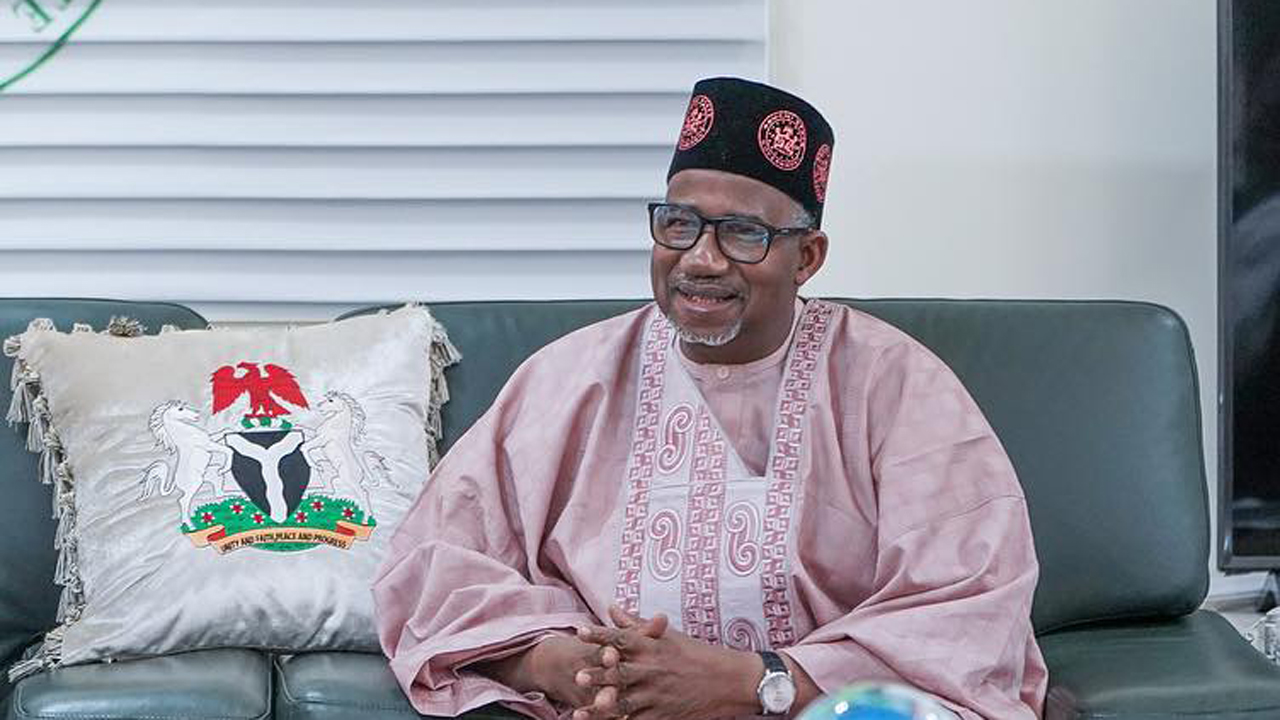
Bala Mohammed, the Governor of Bauchi State, has stated that state governments have not yet reaped the benefits of the increased revenue from the oil sector, as the funds are not being accurately credited to the Federation Account.
In his capacity as Chairman of the People’s Democratic Party Governors Forum, he called on the Federal Government to offer a comprehensive and transparent explanation to the public regarding the failure to properly remit collected revenues for fair distribution among the three levels of government as required by law.
The governor made these comments during a visit from Wale Edun, the Minister of Finance and Coordinating Minister of the Economy, who paid a courtesy call to the state government house ahead of the 2024 Conference for the National Council on Finance and Economic Development taking place in Bauchi.
He emphasized that it should be regarded as nothing short of a miracle that states have not yet benefited from the current oil revenues, despite the country being one of the world’s leading oil producers.
The PUNCH highlights that NNPCL is a significant source of income for Nigeria, functioning as the national oil company responsible for overseeing the management, sales, and other essential activities related to the country’s crude oil and gas.
It contributes revenue from crude oil sales to the government’s treasury.
However, in recent years, NNPC has transferred almost no funds to the Federation Account due to the costs associated with the subsidy on Premium Motor Spirit.
Our reporter’s investigation revealed that the national oil company did not contribute any money to the federation account in 2022.
It stated that the fuel subsidy prevented the revenue-generating company from paying taxes and royalties to the Federation Account and stopped it from turning a profit.
However, Umar Ajiya, the former Chief Financial Officer of NNPCL, confirmed in a documentary earlier this year that the removal of the subsidy led to the company beginning to make remittances into the Federation Account.
“We have now begun to pay dividends to the federation. We are also paying our due obligations in terms of taxes and royalties,” he stated.
The company further stated in the documentary that the end to subsidy enabled it to contribute N4.5tn to the Federation Account in nine months.
“For the first time in a long time, NNPC Ltd in 2023 contributed to the Federation Account, accounting for N4.5tn between January and September 2023,” the national oil company stated.
Further investigations showed that NNPC transferred N431.06bn of its accumulated earnings to the federation account during the first seven months of 2024.
Stakeholders had anticipated better allocation of funds after the fuel subsidy was removed through the current sector deregulation, which led to a 490 percent increase in petrol prices.
However, in his remarks, the governor expressed dissatisfaction, stating that no noticeable changes have occurred.
He said, “It’s a miracle that we are one of the biggest oil-producing nations, but we have not benefited for some time since you came on board.
“You have to explain that this is what you are going through. That is inclusion. And if you don’t say it, nobody will know. But, some of us know. We call this leadership and responsibility.”
“You have to make our oil and gas sector produce. Not only to produce and sell but put it in our Treasury for distribution and sharing.
“You must provide financial services to us at subnational. Financial services that will help us to enhance our productivity, and also use the resources wisely. Because without us, there will be no Federal Government.”
In reply, the governing All Progressives Congress has criticized governors from the Peoples Democratic Party, urging them to demonstrate that they have not gained from the crude revenue under President Bola Tinubu’s current administration.
He said, “Our call at all points in time is that opposing views are welcome in as much as they are constructive towards nation-building, and they are not views expressed only because they want to play to the gallery. If his view is to be taken seriously, it must not be generic and verbose. It must be specific and concrete.
“Senator Mohammed must put down those evidence on the table for further elaboration. It is only at that point that we can then, as a political party, venture to take on the issues in a very objective manner. We have seen clamours of this before now and when you dig further, you will find no substance in it.
“So, by and large, it is welcome, and our call would be that he put the facts. We have always known that proceeds that ought to go into the consolidated revenue account of the country are not things done in an obscure manner. They are things that are done transparently.”
In a special interview with The PUNCH, Nze Chidi Duru, the Deputy National Organising Secretary of the APC, advised Senator Bala Mohammed, Chairman of the PDP Governors’ Forum and Governor of Bauchi State, to seek clarification before presenting unverified claims to the public.
Duru emphasized that the APC government is open to corrections, but urged Mohammed to provide concrete proof to support his assertion, particularly since it is widely known that every state receives a higher allocation under the current administration.
He pointed out that previous warnings of this nature had proven to be nothing more than attempts to discredit the Federal Government and paint it in a negative light before the public.
“It is important again to note that this is the first time in the history of our country that more money has gone into the hands of the various tiers of government at various levels. At the state level and the local government level. So, one would be interested to know what these enormous resources have been deployed at those levels and used in the various states and tiers of government.
“So, the party and the government are not averse to any constructive criticisms or further feedback or data that would help the government to plug in the various loopholes that would bring in money. At the end of the day, these monies are not just meant for the federal government. It is not meant for the APC government or the Tinibu government. These are monies meant for distribution to the states, the local government as well as the federal.
“So, as much as the federal is interested in receiving more money, I would also believe that the states and the local government are also interested in receiving more money. The only way they can make more money or get more money on top of what they are getting is to point out if there are recognisable leakages in the system that need to be blocked.
“If the money that needs to come into the consolidated account is not coming in and is pointed out, the government would make the necessary effort to make sure that those monies are coming into the coffers of the government. This is where I think that the opposition should help headline and spotlight what needs to be done to make the country a much better place than is currently the case,” he stated.
The NNPCL spokesperson, Femi Soneye, did not reply to phone calls, text messages, or WhatsApp messages sent to his contact numbers for clarification on the matter.
The PUNCH
News
Health Experts Warn Against GMO Foods: Potential Risks for Nigerians Revealed
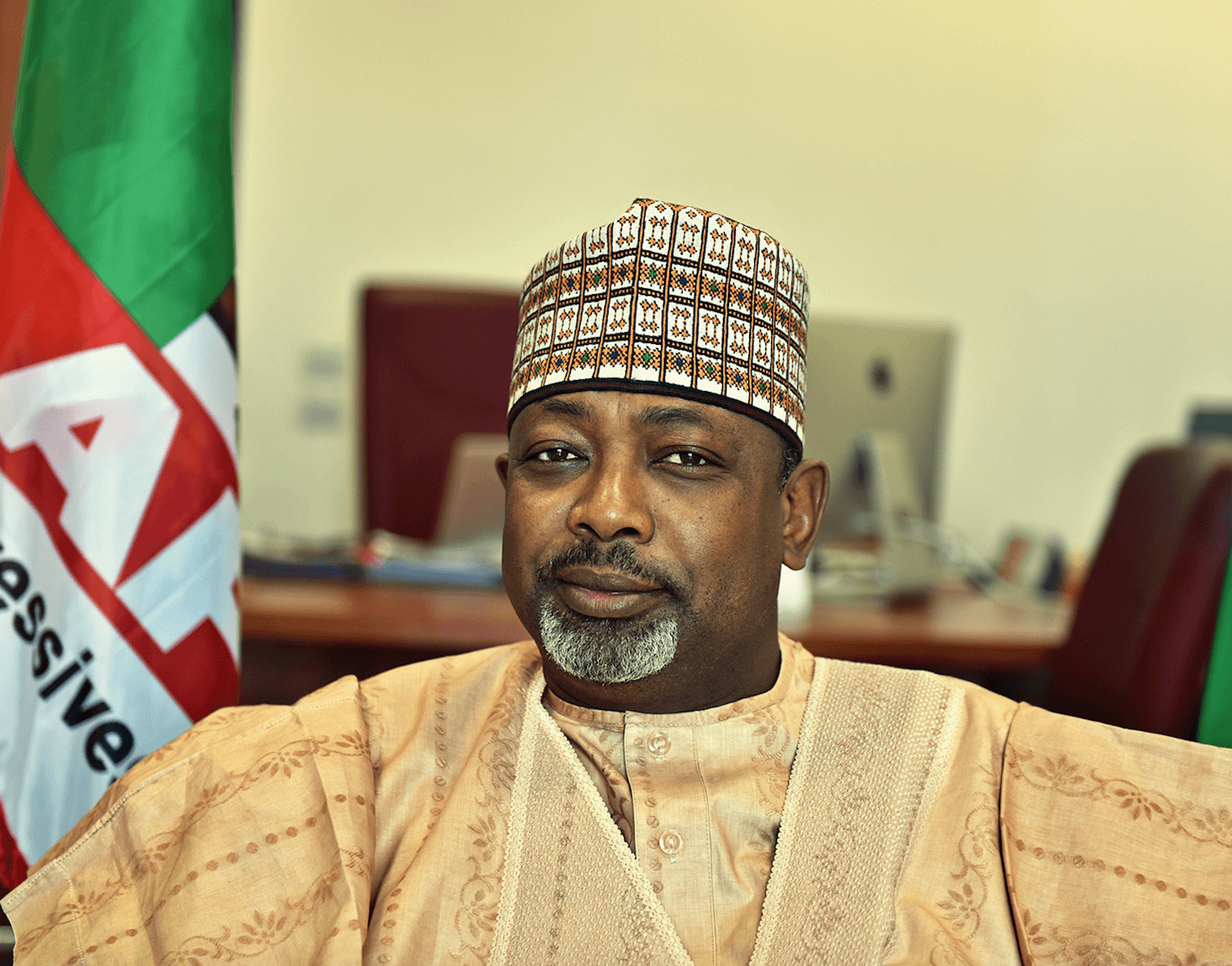
The federal government has urged a joint effort to regulate genetically modified organisms (GMO) foods within the country.
This comes as experts caution about the potential risks of consuming genetically modified foods, highlighting their possible health effects on consumers.
During a public hearing in Abuja on Tuesday, organized by the House of Representatives Committee on Agricultural Production, the Minister of Agriculture and Food Security, Abubakar Kyari, assured that the Federal Government would take all necessary measures to protect the well-being of Nigerians.
Kyari emphasized that while the government, under President Bola Tinubu’s leadership, is dedicated to ensuring food safety and security, efforts will be made to find a balanced approach between those who support and those who oppose the use of GMOs.
He said, “The government will not deliberately bring what is poisonous to the people. This forum is meant for sharing ideas from GMO experts to find a level playing field for food security.
“There are seed councils and regulatory bodies in charge of checkmating seedlings used by farmers hence the need for a collaborative effort.”
During the public hearing, anti-GMO advocates, organized under the GMO-Free Nigeria Alliance, which includes approximately 200 individuals and organizations, voiced their concerns about the potential health and environmental risks associated with consuming genetically modified foods.
The group also called on the National Assembly to impose a total ban on GMOs, emphasizing that foreign entities determined to introduce GMOs into the country play a role in the ongoing insecurity challenges in Nigeria.
Inibehe Effiong, the group’s consultant, presented their memorandum to the Committee, urging the Federal Government to adopt a policy of ‘No to GMO and GMO distribution and circulation in Nigeria.’
He said,”We would like to see in the interim, while the argument is even going on, a national moratorium declared that even if they are not convinced that the adverse effects which majority of the experts have spoken eloquently to are obvious, even if they still want to go ahead with the investigation, pending when they conclude; GMO distribution and circulation in Nigeria should be halted.
“There is a perception that you can do to Nigerians whatever you want to do and nothing will happen. And that explains some of the institutional arrogance that we witness today. To the point that someone was so audacious as to say it is better to eat and die than not to eat and die.
“While we recognise the government’s efforts at improving food security in Nigeria, the adoption of GMOs as a silver bullet to agricultural challenges is an error. Continuing this path holds serious implications on Nigeria’s food sovereignty, on our biodiversity/environmental sustainability, and our health.”
Also speaking, a stakeholder, John Ekpere noted that in September 2024, the National Cotton Association of Nigeria reported that they “Did not record any significant increase in their yields compared to the local seed varieties. They added that instead, since the introduction of GM cotton seeds during the 2020/2021 farming season, yield per hectare remained almost the same.
“They also reported that no other plant has been able to germinate on the farmlands where the GM seeds were planted, even after four years.
“While some GMOs are designed to have increased levels of some nutrients, studies have revealed that other essential nutrients or functions can be reduced in the process. An in-depth scientific comparison of GM crops and their non-GM varieties shows that the assumption of substantial equivalence is false, as unexpected differences have been found.
Speaking to the press after the hearing, Mr. Qrisstuberg Amua, the Executive Director of the Centre for Food Safety and Agriculture Research, attributed Nigeria’s security issues to external influences.
He said: “In Benue State, the supposed food basket is becoming empty, not because Benue people are not producing food, not because they don’t have GMOs. It is because ethnic and foreign interests are taking over. GMOs are biological weapons and agents of mass destruction.
“They are pushing insecurity on our nation, sponsoring it clandestinely, and I challenge the national security apparatus to look deeply into this, investigating why our farmers can’t go to farms. But these people are ready to create a scenario of hunger to advertise genetically modified poisons.”
Nigeria
Amotekun Uncovers 41-Year-Old Man’s Self-Kidnap Scheme in Ogun

The Ogun State Security Network, also known as the Amotekun Corps, has uncovered a self-kidnapping plot allegedly orchestrated by 41-year-old resident Enitan Awoyemi, who sought to escape a debt of approximately N1 million.
A statement issued on Wednesday by Brigadier General Alade Adedigba (retd.), the state’s Amotekun Commander, revealed that Awoyemi, from Irolu-Remo in Ikenne Local Government Area, allegedly staged his own abduction to avoid settling a significant gambling debt.
The scheme came to light when Awoyemi’s wife, Mrs. Tope Awoyemi, reported on November 10 that her husband had contacted her, claiming he was kidnapped the previous day by unidentified captors who were demanding a ransom of N5 million for his release.
“Upon receiving the report, the Amotekun Intelligence team launched an investigation into the alleged abduction. Findings revealed that Enitan Awoyemi had accrued significant debts from gambling in a lotto game, amounting to a staggering N1 million,” the statement read.
The statement further revealed that Awoyemi, known for his regular gambling habits, had once won N6 million, using a portion of the amount to buy a Toyota Corolla Sport and a Bajaj Boxer motorcycle for business use.
However, when unable to settle his debts, he reportedly staged his own kidnapping.
Amotekun personnel, in collaboration with the Vigilante Group of Nigeria and other local partners, traced the suspect first to Ijagba town and then to Ota in the Ado-Odo/Ota Local Government Area.
Officers detected a strong odour of insecticide on Awoyemi, indicating a potential suicide attempt. He was promptly taken to Rufina Private Hospital in Iperu for treatment.
Brigadier General Adedigba reassured the public that Awoyemi would undergo the appropriate legal procedures.
“Once he is discharged from the hospital, he will be handed over to the police for further proceedings,” he stated.
The Amotekun Commander commended the teamwork that resulted in the arrest of the suspect and encouraged the public to stay alert and report any suspicious behaviour.
“This incident underscores the importance of community cooperation in ensuring safety and security,” Adedigba said.
Education
ASUU Blames IMF, World Bank for Undermining Nigeria’s Universities
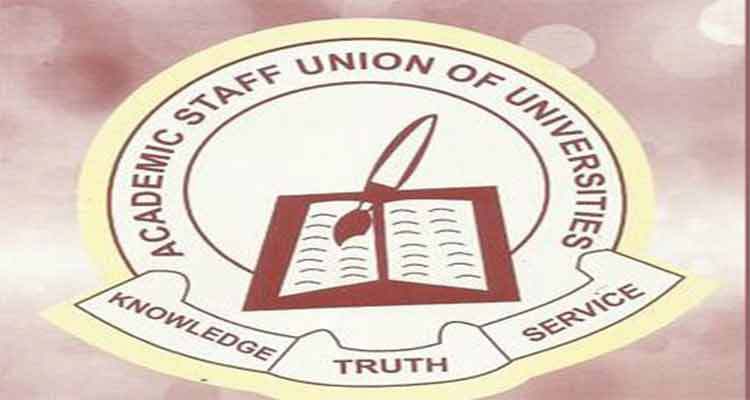
The Academic Staff Union of Universities (ASUU) sounded the alarm on Tuesday about a scheme to undermine the welfare of public universities in Nigeria.
At an event in Abuja celebrating ASUU’s Heroes Day in 2024, ASUU National President, Prof. Emmanuel Osodeke, claimed that the World Bank and International Monetary Fund are persistently working to dismantle Nigeria’s public education system.
The union expressed frustration over the stalled renegotiation of its 2009 agreement with the Federal Government, pointing out that, despite multiple Memoranda of Understanding and Action, the ASUU-FGN 2009 Agreement remains unresolved and unfinalized.
Prof. Osodeke also lamented that the situation has worsened due to the continued enforcement of the Integrated Personnel and Payroll Information System in public universities, despite the Federal Executive Council’s previous announcement to remove the system from higher education institutions.
Osodeke also voiced concern that the Federal Government continued to unfairly withhold the union’s salaries for three and a half months, along with unpaid wage arrears, overdue promotions, and the unresolved Earned Academic Allowance.
Speaking further at the event, where ASUU honoured what it described as its “past and living heroes,” Osodeke commended the union’s members nationwide for their “courageous comradeship and sacrifices to the cause of our union, which forever resonate with the emancipation of Nigerian public university education and the suffering Nigerian people.”
He stated that the union plans to provide PhD scholarships to select members from different public universities nationwide. Each grant, worth N500,000, will be awarded following a thorough evaluation of proposals conducted by specialists in the relevant fields.
“Comrades, like in the past, this year’s celebration of our heroes also takes place as we continue the struggle to rescue Nigeria’s public universities from the suffocating clutches of the World Bank and the IMF, whose determination to destroy and bury our public university system has not abated.
“It is rather lamentable that we are still struggling to compel the renegotiation of our 2009 Agreement with the federal government, twelve years after it should have been concluded, and after four rounds of failed negotiations.
“It is most disheartening and egregious that despite the several Memoranda of Understanding (MoUs) and Memoranda of Action (MoAs), the ASUU-FGN 2009 Agreement is yet to be renegotiated and finalised,” he said.
Osodeke alleged that at the state level, ASUU members “are still being punished for fighting for the interests of members and the university system.”
He added, “Let me re-emphasise that we stand with our members at Kogi State University, Lagos State University, Ebonyi State University, and Chukwuemeka Odumegwu Ojukwu University in their persecution for their principled support and solidarity in the struggle to defend the soul of public university education in Nigeria.
“As part of our Heroes Day celebration, this year, and in line with the NDC decision, the union will be offering PhD grants to some of our members across various public universities in the country.
“The grants, valued at five hundred thousand naira per recipient, will be based on the rigorous assessment of their proposals by experts in their respective disciplines.”
The event honored distinguished individuals, including Prof. T. Uzodinma Nwala, Prof. Bright Ekuerhare, Prof. Oye Oyediran, Mallam Bashir Kurfi, Prof. The Name Ikiddeh, Mr. S.A. Fadipe, and Prof. Sola Olukunle.
Additional honorees included Nasir Hussain, Tunde Oduleye, Prof. Rasheed Abubakar, Akin Oyebode, Mustapha A. Danesi, A.T. Wins, and Dr. Peter Ozo-Son.
The PUNCH
Nigeria
Rivers State Election: Appeal Court Sets Up Special Panel, Hearing Begins Thursday

The Court of Appeal in Abuja has set up a dedicated three-member panel to address political cases originating from Rivers State, with hearings set to start on Thursday, November 14.
This decision comes in response to the rising number of legal conflicts linked to the ongoing dispute between Rivers State Governor Siminalayi Fubara and his predecessor, Nyesom Wike, who is now the Minister of the Federal Capital Territory.
The clash has triggered a wave of lawsuits from the state, causing divisions among political figures and resulting in inconsistent rulings from courts of equal authority—an issue that has faced scrutiny from judicial stakeholders and the public alike.
To streamline the handling of these cases, Court of Appeal President Justice Monica Dongban-Mensem appointed a special panel to manage all appeals connected to the political tensions in Rivers.
The panel, led by Justice Onyekachi Otisi and joined by Justices Misitura Bokaji-Yusuf and James Abundaga, is set to handle cases involving prominent political figures and factions within the state.
Among the appeals scheduled for review is one submitted by Governor Fubara and the Rivers State House of Assembly, along with cases featuring both the Peoples Democratic Party and the All Progressives Congress. These cases concern the alleged defection of 27 lawmakers loyal to Wike from the PDP to the APC.
On Monday, a court panel postponed three appeals, including one brought by the Rivers State Government against the Rivers State House of Assembly and others, which will now be addressed by the newly appointed special panel.
The presiding Justice Hamma Barka noted, “The appeal, marked CA/ABJ/PRE/ROA/CV/1211m1/2024, is among the Rivers matters for which a special panel was constituted.”
Senior lawyer Chief Paul Erokoro, representing the appellant, notified the court about plans to ensure that all respondents who had not yet been served would receive the required documents by Thursday.
He added that he had just obtained some filings from the respondents and would need time to prepare his reply.
Counsel for the first and second respondents, Ferdinand Orbih (SAN) and Dr. Joshua Musa (SAN), who also represented other respondents, concurred with the request to postpone the hearing until November 14.
Two other cases—a suit by the Accountant General of Rivers State against the Rivers State House of Assembly and one by the Action Peoples Party against the Independent National Electoral Commission and others—were also postponed to Thursday for a hearing by the special panel led by Justice Otisi.
This panel was set up to ensure a swift and decisive resolution to the political disputes, marking an essential move toward restoring stability amid Rivers State’s ongoing political challenges.

2025: How To Plan A Budget For The Upcoming Year

Ruud van Nistelrooy Opens Up on Hurtful Manchester United Exit Before Taking Leicester City Job

Obasanjo would have died under Abacha if not for me -Gowon

Why I don’t trust any public institution in Nigeria – Fisayo Soyombo

Minimum Wage: Cross Rivers Workers to embark on indefinite strike

Bayer Leverkusen Forward Victor Boniface Faces Possible Sanction for Reckless Driving Incident

Radda approves N70,000 minimum wage for Katsina workers

PH refinery has not commenced bulk sales – NNPC

CBN issues Dec. 1, ultimatum against banks, ATM delays



